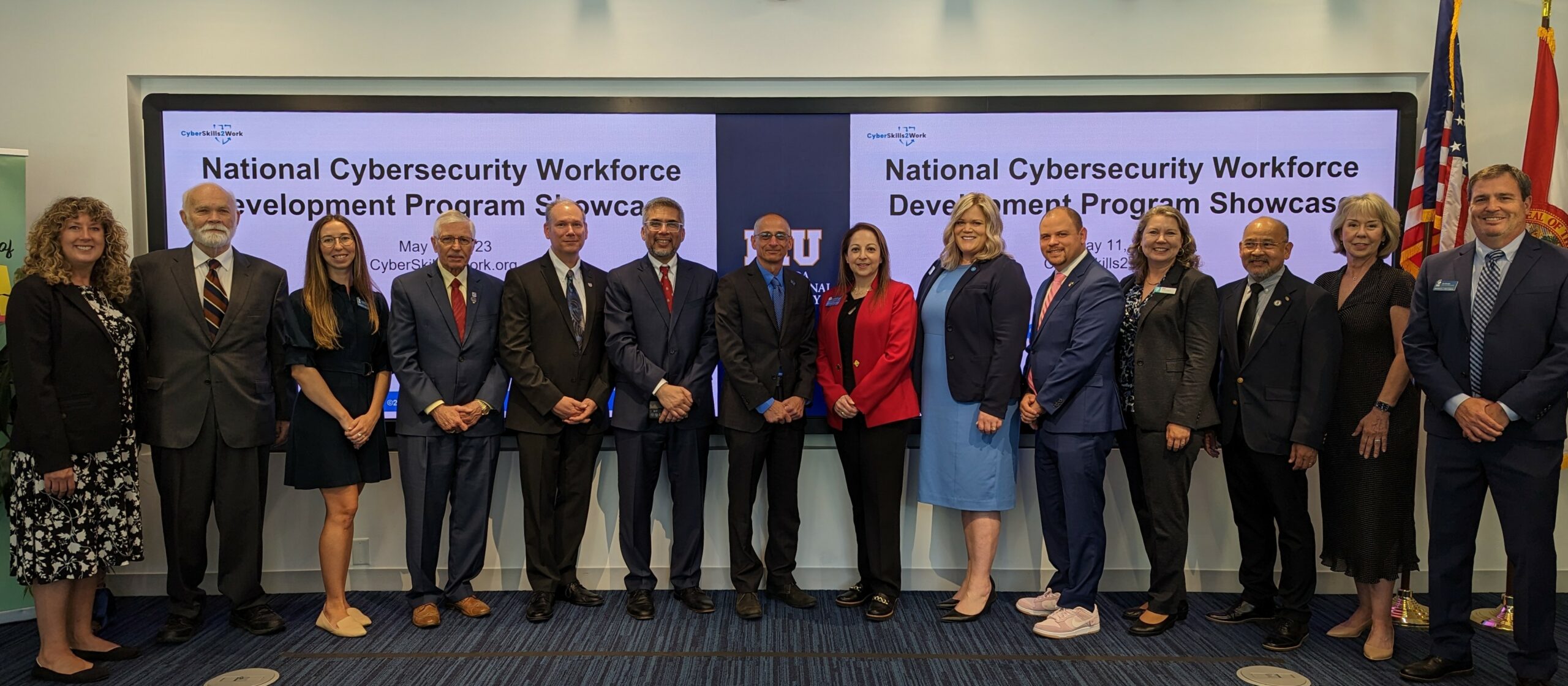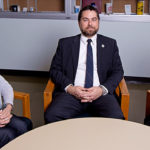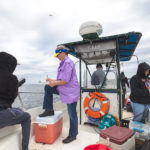National Cybersecurity Workforce Development Program showcase highlights program’s success and impact
The University of West Florida Center for Cybersecurity highlighted the success and impact of the National Cybersecurity Workforce Development Program at a showcase held at Florida International University in Washington, D.C., on May 11. Cybersecurity leaders addressed the program’s role in meeting the cybersecurity workforce challenge and program partners and graduates shared their perspectives on the program. Dr. Eman El-Sheikh, associate vice president for UWF’s Center for Cybersecurity and principal investigator for the national program, shared a program overview and highlighted its impact.

“The National Cybersecurity Workforce Development Program is an innovative, nationally scalable solution to address the growing shortage of qualified cybersecurity professionals,” El-Sheikh said. “Instead of traditional academic programs, the Coalition has developed flexible work-role based educational pathways that focus on employability – the competencies and skills needed for various cybersecurity roles and the industry certifications and credentials needed to document them. This enables a significant expansion of the cybersecurity workforce who are job-ready from day one.”
Over the past three years, a coalition of 10 National Centers of Academic Excellence in Cybersecurity institutions led by UWF has developed 28 training pathways that prepare for 15 cybersecurity work roles, and trained over 1,700 transitioning military, first responders and veterans for cybersecurity careers in critical infrastructure sectors. Legislative, federal and industry partners gathered in the nation’s capital to hear perspectives from the CyberSkills2Work program team, graduates and employers.
Keynote remarks were made by Mark Montgomery, Cyberspace Solarium Commission 2.0 executive director. Montgomery discussed the importance of programs that continue our investments in veterans and spouses and help address our cybersecurity workforce shortfalls.
“We need to capture and utilize the investments we as a country have already made in transitioning veterans and spouses,” Montgomery said. “Many of the veterans worked in cyber-adjacent fields while in the service, and they have the technical expertise and security clearances that make them great candidates for cybersecurity work in the private sector and state and local governments. We need to invest in programs like CyberSkills2Work and transition them from pilot programs to persistent, resourced programs supported by the private sector, academia and governments.”
The program is funded by a $9 million, three-year NSA National Centers of Academic Excellence in Cybersecurity grant. The showcase was the first of its kind hosted by UWF and FIU in Washington, D.C.
“The CyberSkills2Work program showcases the strength of collaboration between academic institutions, the military, first responders, and the private sector in addressing the nation’s urgent need for a robust cybersecurity workforce,” said Randy Pestana, principal investigator, Florida International University CyberSkills2Work Program. “As part of the consortium, FIU is honored to contribute to the training and development of hundreds of veterans and first responders, empowering them to defend our critical infrastructure against ever-evolving cyber threats.”
Coalition member institutions include the University of West Florida, Augusta University, Dakota State University, Eastern New Mexico University–Ruidoso, Florida International University, Metropolitan State University, San Antonio College, University of Houston, University of South Florida-Cyber Florida and the University of Texas at San Antonio.
For more information about the CyberSkills2Work program, visit cyberskills2work.org.



